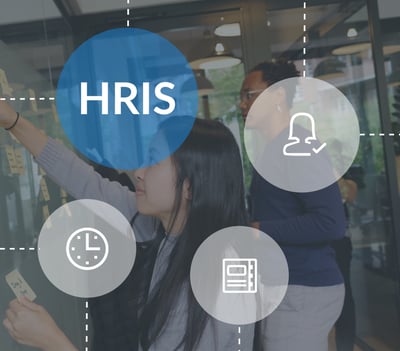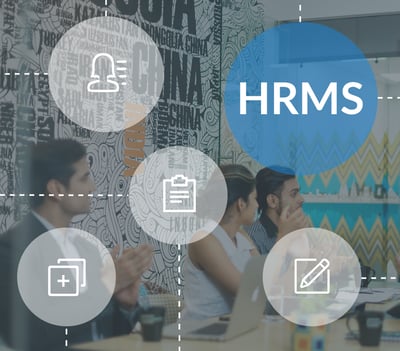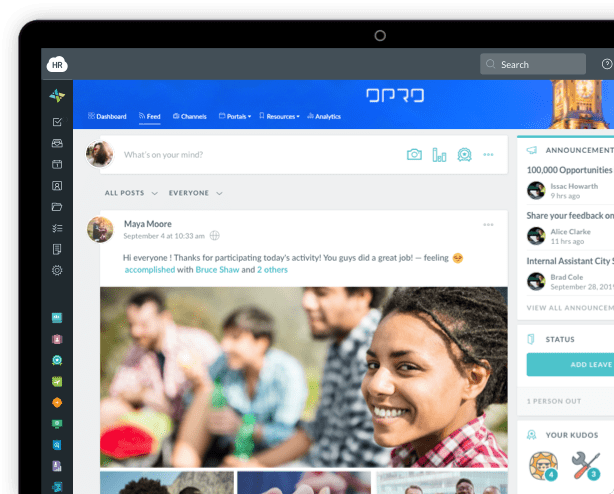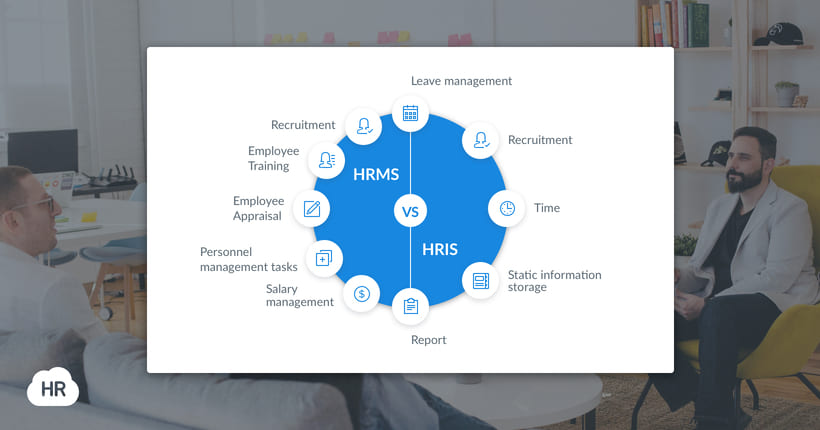What is the Difference Between HRMS and HRIS software?
If you’ve been researching HR software or even HR suites, the terms HRIS and HRMS will have undoubtedly caught your eye (as well as a third HR software category, HCM).
Unfortunately, as straightforward as these terms seem to be, there is a bit of confusion: What do all these abbreviations mean, what is the difference between HRIS and HRMS, and how can you choose the right system for your organization?


If you enjoyed this post, sign up for a Free Trial of our software!
To help, we wrote this blog as a way to take a closer look at the differences between HRMS and HRIS software, but also to help you understand what each one includes and even which approach could be right for you.
For starters, here’s what these two terms stand for:
-
HRIS: Human Resource Information System
-
HRMS: Human Resource Management System
Many people use these terms interchangeably, and for good reason, since both types of solutions help companies manage their workforce using a variety of specific, specialized HR-focused applications and systems.
Yet by definition, there is a difference between the two, most notably in the various systems included in each one. Let’s take a closer look.
What is an HRIS?
Most purists agree that HRIS is the smallest bundle of HR software. HRIS platforms are designed to get you up and running quickly while providing the most essential HR systems, applications, and functionality most companies need.
HRIS software does a great job in helping companies manage and organize employee-related data such as demographic data, job information, benefits information, performance reviews, and leave balances.
While many HRIS software solutions may vary, most tend to include the following applications or features:
-
Application tracking systems: These systems help improve recruiting efforts: post jobs, receive and track applications, and create a resume repository.
-
Onboarding: HRIS may also include software to automate onboarding tasks, such as checklists and workflows, to improve the new hire experience.
-
Leave and absence management: Manage employee time off, unplanned absences, and other forms of leave.
-
Workflow management: Create and manage business workflows to boost productivity.
-
Benefits administration: Manage employee health insurance, 401(k) plans, and help employees track relevant information.
-
Compensation management: You can set up salaries, paid time off, overtime compensation, and other forms of compensation.
-
Training: Set up and provide continuing education and development programs for your employees.
-
Self-service: Your employees can log into a portal, use E-Sign to complete forms, and manage their information.
-
Personnel tracking: Manage all relevant employee information in a single repository.
The expanding scope is the major reason people get confused between HRIS and HRMS. Many functionalities that were solely the domain of HRMS are now present in HRIS software.

What is an HRMS?
HRMS software is an all-encompassing solution that allows companies to manage every aspect of their HR. They contain all the features of an HRIS, with additional systems and features built on top of it (most notably, time and labor and payroll). For example, these systems tend to accommodate a global presence. You can create country-specific silos within your system to cater to employees at a particular location.
Since laws differ from one country to another, HRMS software allows you to customize your workflows and employee management according to local regulations. The most striking feature of HRMS software is payroll management. You can set up direct deposits and pay your employees from your software. Taxation and other legalities can also be handled automatically within your software suite.
A system that used to be present solely within HRMS was time and labor management. These solutions allow you to track your employees' productivity and the degree of collaboration that happens between them. This can help you create better workflows and increase your ROI.
Another feature that HRIS has encroached upon is analytics. While the depth of analytics available in an HRIS versus HRMS differs, many HRIS software provide some degree of analytics. Some examples of these include employee advocacy. You can monitor which of your employees are your most loyal brand advocates through social media shares, and so on.
HRMS analytics tend to be more powerful. You can roll up metrics at various levels, be it at the branch, country, or region level. These systems also support ad-hoc reporting that allows you to create your own reports, instead of relying on fixed templates. The number of integrations that HRMS supports also tends to be greater than the average HRIS.
HRIS supports integration with third-party apps, but on a smaller scale, and is aimed at helping you achieve basic functionality.

Choosing the right solution
The lines between HRIS and HRMS are increasingly blurred. The clearest distinction lies in the global scope of an HRMS versus the local scope of HRIS. To choose the right solution for your organization, analyze all the features available in the software.
You might need just basic HR capabilities, but don't automatically assume any HRIS will fit the bill. Vendors define the scope of their HRIS software differently, so make sure you conduct thorough research into them before choosing a product. One vendor's HCM might be another's HRIS and a third's HRMS.
Define your requirements clearly and choose the right vendor for your needs.
Interested in learning more about HR Cloud’s comprehensive HRIS solution consisting of Recruiting/ATS, Onboarding, Performance Management, and more? Please visit www.hrcloud.com or request a personalized, no-obligation product demo today.

Keep Reading
Remote Onboarding Done Right: A Step-by-Step Guide for HR Teams
When a new hire walks into your office, you smile, shake hands, and show them around. But
Importance of Onboarding: Purpose, Benefits, and What It Means for Your Workplace
Think about the last time you joined a new team. You had questions, maybe even doubts.

